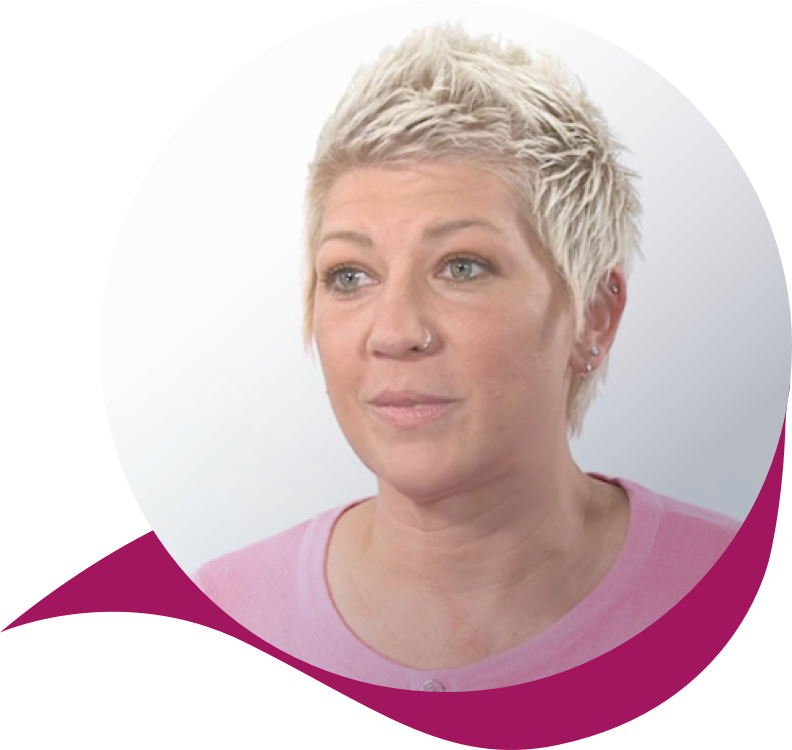Coping with my diagnosis.
First things first: Don’t panic.
There’s no question that receiving a breast cancer diagnosis is a traumatic moment. Not just for you – for everyone in your life.
But the truth is, patients generally have a much more positive prognosis than in the past. Thanks to early detection and advanced treatments, breast cancer death rates declined by nearly 40% between 1989 and 2015.
The most important thing to do now is redirect your energy towards a plan of action.


Stabilizing emotions and gathering support.
Many patients with cancer have found that relaxation exercises help bring them peace in moments of stress. There are countless online classes, Youtube videos and other digital resources that offer techniques for slowing your breathing and releasing muscle tension so you can free your mind from distraction.
Coping with the news is never something you should have to do alone. This is a time to surround yourself with a strong network of friends, family, counselors, fellow survivors and support groups. Whether you are ready to take action or paralyzed with fear, they can provide a positive environment where all feelings are valid and all questions are fair game. Lean on them when looking for guidance or just an ear to listen.
Getting to #knowyourbreastcancer
It’s important to understand what the next steps are and which ones are right for you and your situation. The best way to do that is to combine your own research with advice from a full health care team, including a breast surgeon, medical oncologist, radiation oncologist, plastic surgeon, physician assistants, navigators, and nurses.
There are a number of qualified organizations that consistently deliver the most up-to-date information on breast cancer and treatments. Be sure to ask your doctors about what is specifically relevant to you. Not all of it will be applicable.
Preparing for discussions with your healthcare team.
Before each medical consultation, take note of different things you can do to get the most out of your visit. These actions will help lead you to a plan that is most ideal for you.


Pick an appointment buddy.
The information you receive in these meetings can be overwhelming. Having someone there to take notes will make things easier to remember and absorb.

Be upfront about your worries.
Fear of chemotherapy and its side effects is quite common. Your honesty about this and other concerns will enable doctors to be more sensitive to your needs.

Get the right testing.
The proper tests will give your doctors everything they need to know about your specific tumor, so they can better decide how to proceed.
Ask your doctor to order a genomic test!


